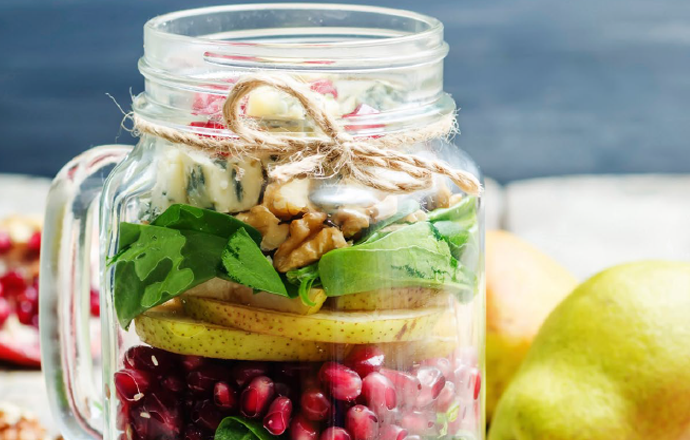If you’re ever feeling depressed or anxious, take a close look at what your diet is like. Did you know how much food can affect your mood?
1 in 4 people in the UK will experience mental health issues each year, with anxiety and depression the most common problems.
Neil Martin – Natural Juice Junkie takes us through his story of how food helped him lighten his mood.
The first time I took antidepressants was in early 1998 following the death of my Dad when he was just 50 years old. I was 22 and didn’t know how to cope. It was a good friend of mine that suggested I see a doctor. I walked out of the surgery with a prescription in my hand for ‘happy pills’ to help it all go away.
Following my dad’s death, mental health challenges became a regular part of my life. I could be in a room filled with family and friends and still feel alone. I could have great moments of fun and excitement, but fear and paranoia always followed. I could be in beautiful sunshine, but my personal black cloud was always just above me.
I was getting sick, both physically and mentally and for more than a decade I tried my best to ignore the steady decline in my health. I was so obese, I was off the chart on the NHS healthy weight calculator and I was suffering from an ever-growing list of illnesses (both physical and mental).
There were some highly visible signs, like my weight gain, that I would try my best to cover up with baggy clothes. I was even better at hiding the less visible signs, like my depression and mental health challenges. Afraid of the stigma and the impact it could have on my career, I hid them from everyone, including many of my closest friends and family.
Something had to change…
I decided to take responsibility for my own health and sought help from a nutritionist. Something unexpected happened. Not only did I lose some weight, I quickly saw both my physical and mental health improve. Like many people, I used to comfort eat when I was feeling down or depressed. What I didn’t know is that eating processed food may increase the risk of clinical depression*1.
I guess if the old adage that ‘you are what you eat’ is true, then it should be no great surprise that if you eat rubbish, you will feel pretty rubbish too – and not just physically. The old me used to eat rubbish food, feel terrible, then eat more to feel better.
I’d also drink a lot of alcohol to try and forget about the feelings of depression. Drinking often made me eat even more rubbish food, then I’d wake up with a hangover and the cycle would start again.
Even if I had known the impact my diet was having on my mental health, it may still have been hard to quit junk food. In 2010, American researchers found burgers, chips and sausages programmed a human brain into craving even more sugar, salt and fat laden food. The researchers found laboratory rats became addicted to a bad diet just like people who became dependent on cocaine and heroin, suggesting that our brains may react in the same way to junk food as they do to some drugs*2.
Did you know that 95% of your serotonin (the feel good hormone) is made in the gut? As result, healing your gut may also help to heal your mood.
Serotonin is a brain chemical that promotes relaxation and is responsible for maintaining mood balance and there is a growing body of research that shows a healthy gut is key to having a healthy mind. I am often asked ‘how juicing and diet changes can help conditions like IBS’?. Many people are surprised when I ask if they have also been suffering from depression, not realising that the two are often linked.
The key to maintaining gut health is looking after the microbes that make up its ecology. Consuming foods rich in probiotics (good bacteria), such as miso soup, sauerkraut, kefir, kombucha, kimchi, pickles and yoghurt, will help with this. There is also research that suggests consuming spirulina helps boost growth of probiotics.
A 2015 study from Leiden University in the Netherlands suggests probiotics may be used to prevent depression and lead to an improvement in mood*. As well as looking after your good bacteria, it is also important to eat foods containing the essential amino acid, tryptophan. Tryptophan helps our bodies to create serotonin and must be derived from the foods we eat, as our bodies do not produce it.
Tryptophan can be found in chocolate, oats, dried dates, yogurt, chickpeas, almonds, sunflower seeds, pumpkin seeds, avocado, buckwheat, spirulina, bananas, and peanuts. It also found in most protein rich foods.
There are no doubt many other links between food and mood, that science is still yet to explain and I believe the best way to maintain both physical and mental health is to eat a diet that mainly consists of real food, rich in plants and made from scratch.
I’ve said it many times before and will no doubt say it many more times too: if you want to be as nature intended you need to eat as nature intended.
From inside our Autumn issue of Thrive Magazine:
Thanks to Natural Juice Junkie – Neil martin for this feature










